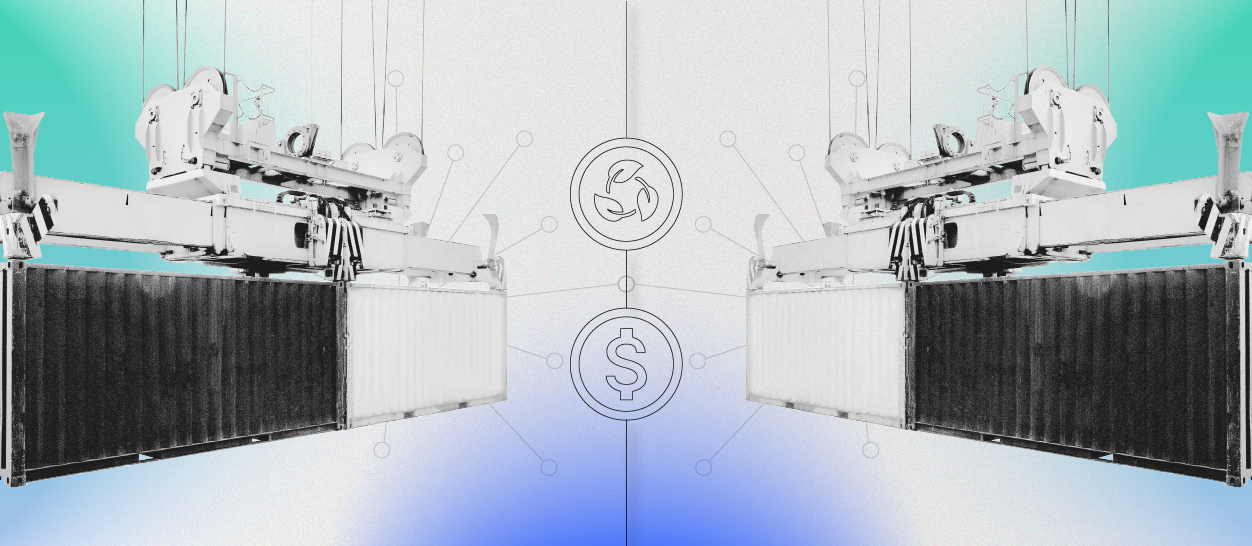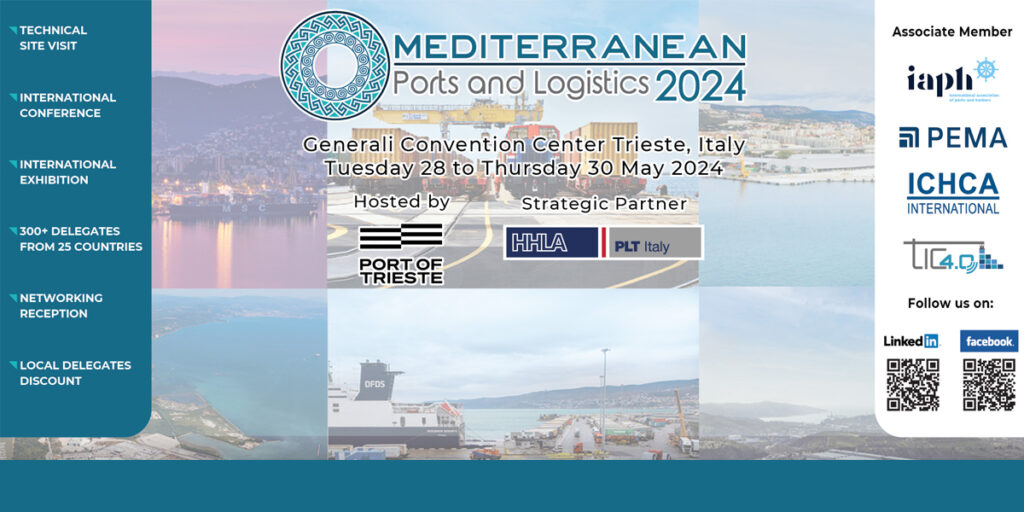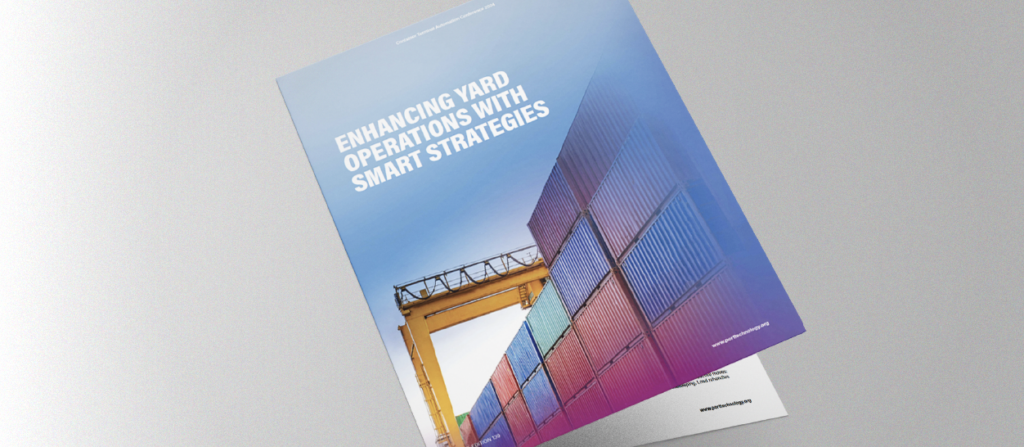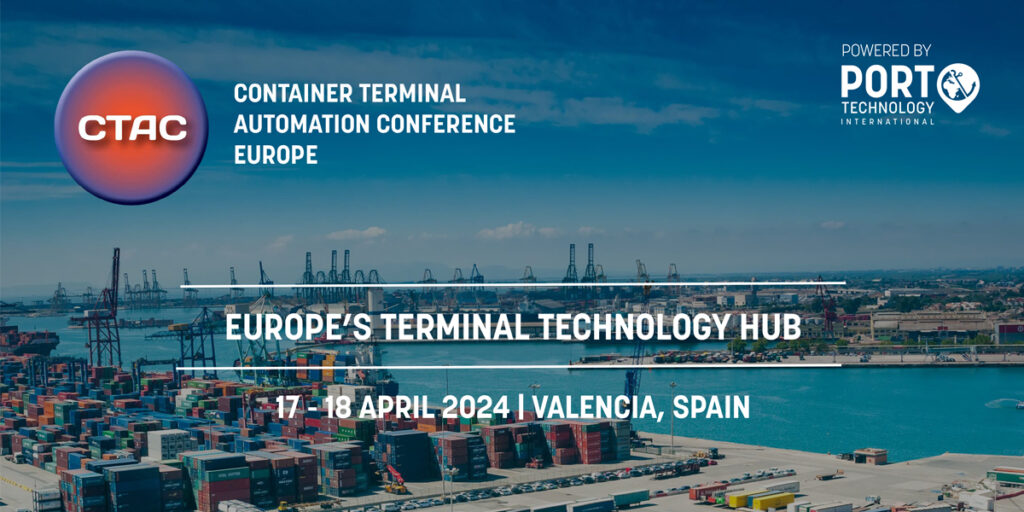Mirror Reflections
Enhancing Container Terminal Efficiency with Digital Twins

By Ananta Mahapatra, Principal Data Scientist at Avlino
Container terminals are critical in the vast network of the global supply chain, ensuring the smooth transition of goods across the globe. As trade volumes increase, these hubs encounter escalating challenges, including logistical hurdles and the need for sustainable operations.
Within this setting, Digital Twin Technology emerges as a transformative solution. This approach creates dynamic virtual models of physical systems, allowing for in-depth analysis, optimization, and experimentation. It bridges the physical and digital spheres, enhancing efficiency and decision-making in container terminal operations.
At its core, Digital Twin Technology is a virtual mirror of physical assets, processes, and systems, offering a dynamic, digital counterpart to the tangible world of container operations. This innovative technology integrates real-time data, predictive analytics, and machine learning to improve operations’ resilience and efficiency.
By offering a common platform for analyzing complex terminal operations and data from multiple sources, Digital Twins allow researchers and practitioners to gain a deeper understanding of the system and its behaviour and to identify patterns and trends that may not be immediately apparent, which results in proactive management, resource use optimization, and environmental impact reduction, helping to set new standards for operational excellence.
The Operational Challenges of Smart Terminals

Despite their technological advancements, container terminal operations continue to face significant challenges. Inefficiencies in container movement and stacking strategies, congestion, and unpredictable operational disruptions notably hinder smooth operations. Traditional methods, which often rely on historical data and static planning, struggle to address these dynamic and complex trials effectively. These conventional approaches fail to adapt to real-time conditions and changes, which underscores the need for more agile and responsive strategies to manage terminal operations.
1. Inefficient Container Movement and Stacking Strategies
Optimizing the strategic movement and stacking of containers within the yard is crucial for reducing handling times and maximizing space utilization over a longer time horizon. However, traditional strategies often take a more tactical approach that falls short as it needs more flexibility and insight to effectively adapt to dynamic conditions and fluctuating demands that make planning reactive. This rigidity can lead to bottlenecks and inefficiencies in container handling operations.
2. Congestion and Throughput Optimization
Congestion, a significant and persistent problem for port operations specifically involving RTG yards, not only leads to the delay of shipments but also escalates operational costs substantially. The underlying reasons for this issue are typically complex and involve multiple factors. These include inefficient scheduling processes, suboptimal utilization of equipment, and inadequate use of available space. Each of these factors alone can hinder efficiency, but together, they compound the challenges, making it difficult to streamline operations and reduce delays effectively.
3. Operational Disruptions and Predictability
Operational disruptions, including equipment malfunctions, labour shortages, or abrupt adjustments in shipment schedules, can severely undermine even the most well-prepared plans. These unexpected events highlight the critical need for a more resilient and adaptable approach to terminal operations. To mitigate such disruptions, it is essential to develop strategies that enhance flexibility and improve the predictability of operations, ensuring a smoother and more reliable workflow at the terminals.
Digital Twins: The Game-Changer for Terminal Operations

Digital Twins help tackle these operational challenges by developing a virtual replica of the container terminal. This model is continuously updated with real-time data, offering a comprehensive, bird’s-eye view of the terminal’s operations. Such a detailed virtual representation allows for unprecedented simulation, replication, analysis, and optimization of processes. This advanced capability enables stakeholders to anticipate and mitigate issues, streamline operations, and enhance efficiency in ways that were once beyond reach.
Integrating Digital Twin Technology with IoT devices, for example, provides terminals with real-time operational visibility, enabling the early identification and prediction of potential congestion points. This seamless combination of Predictive Analytics and Digital Twins allows forecasting future scenarios based on current trends. Consequently, this predictive insight empowers terminals to implement proactive strategies to alleviate bottlenecks and enhance throughput, thereby streamlining operations and increasing efficiency across the board.
Digital Twins can employ advanced AI algorithms to refine container movement and stacking strategies. By quickly validating many what-if scenarios digitally and shadowing the real operations, AI can foresee more optimized and cost-effective paths while simultaneously derisking physical involvement of equipment or operational disruptions.
This intelligent approach allows terminal operators to dynamically adapt their plans in response to real-time conditions, such as shifts in vessel arrival times or changes in prioritization. By leveraging these AI-driven insights, operators can significantly reduce handling times and enhance space utilization, leading to more efficient and responsive terminal operations.
The predictive capabilities of digital twins are instrumental in forecasting potential operational disruptions, enabling terminals to develop comprehensive contingency plans and respond rapidly to unforeseen changes. This enhanced resilience transforms terminal management by transitioning from a traditionally reactive to a decidedly proactive stance. Such a shift ensures terminals are better prepared to handle disruptions smoothly and maintain continuous operations, minimizing downtime and improving overall efficiency.
The Tangible Benefits of Digital Twins for Container Terminals
We’ve covered how digital twins contribute to operational efficiency, predictive maintenance, and disruption management within container terminals. However, the advantages of this technology extend even further.
- Real-time Decision-Making: With continuous updates from real-time data, digital twins allow for dynamic decision-making. Terminal operators can adjust to changes in vessel arrival times, cargo volumes, and resource availability, making operations more responsive and less prone to bottlenecks.
- Cost Reduction: Improved efficiency and predictive maintenance contribute to significant cost savings. Terminals can reduce overhead costs and improve profitability by optimizing resource use and preventing equipment failures.
- Environmental Impact: Digital twins in logistics help plan and execute more sustainable operations by optimizing fuel use, reducing idle times for ships and cargo handling equipment, and managing traffic within the terminal more efficiently. This contributes to lower carbon emissions and better compliance with environmental regulations.
- Enhanced Security and Safety: By modelling physical processes and operations, digital twins help identify potential safety issues and security breaches within the terminal, allowing for improved measures to mitigate risks.
Looking Ahead: The Future of Container Terminal Operations

The trajectory of digital twin technology points toward an increasingly integrated and intelligent future for container terminal operations. As these technologies evolve, so will the capabilities of terminals to anticipate challenges, streamline operations, and enhance decision-making processes.
The advent of solutions like AICON Yard epitomizes this progression. By harnessing AI-powered digital twin modelling, AICON Yard empowers terminal operators to strategically place containers in the yard, leverage predictive insights, reduce costs, and boost throughput. This Yard Planning Solution is not merely a tool but a precursor of the future, where the digital and physical worlds converge to redefine efficiency and productivity in container terminals.
In conclusion, as we stand on the cusp of this digital transformation, the potential of Digital Twin Technology to enhance container terminal operations is both vast and compelling. Much like a mirror reflecting the intricacies of reality, digital twins offer a glimpse into a future where every container move is optimized, every challenge is anticipated, and every decision is informed.
For terminal operators and the global supply chain, the journey toward enhanced efficiency, resilience, and sustainability is not just a possibility but an unfolding reality mirrored in the virtual world of digital twins.
Trending Now
Take A Closer Look
Wondering what this solution looks like in your own container yard? Download the comprehensive case study that breaks down the how and why—and envision groundbreaking progress in your operations for tomorrow.



